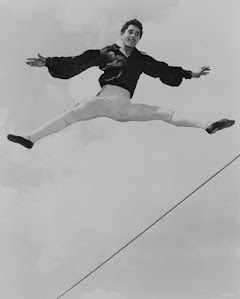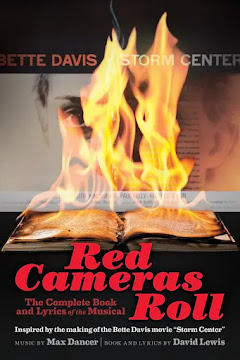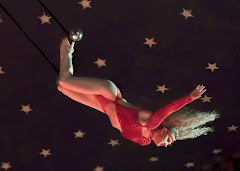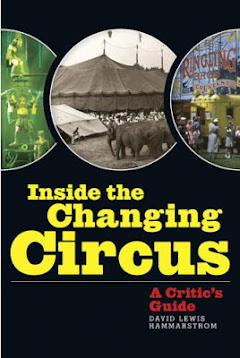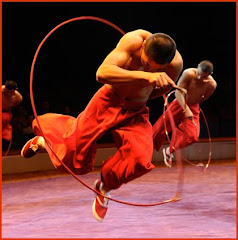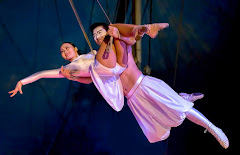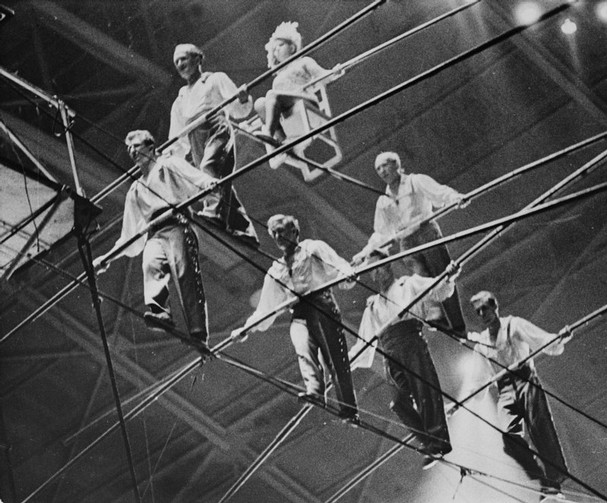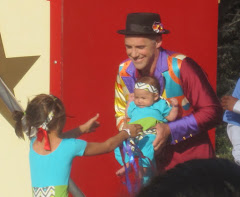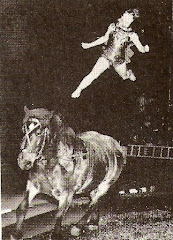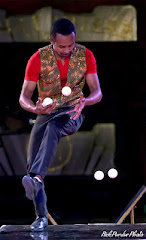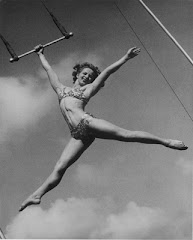On my most memorable day ever spent at a circus, part of it took place on a hot and humid afternoon under Pt. Richmond California sunshine, standing outside the big top of Ringling Bros. and Barnum & Bailey, listening through canvas to the band play the 1955 score. I strained to hear melodies that might be linked to action in progress, such as the grand spec, Holidays. I stood there, feeling I'd finally reached the edge of a spangled paradise, entranced while candy butchers hustled back and forth with trays of soda pop, empty on their way out, stacked afresh on their way back in.
And the incessant heat beat down. And the band blasted incessantly on.
The big top was fairly packed that afternoon, Big Bertha a huge draw still in her gilded glory.
That evening, I would be on the inside, sitting in my own reserved chair and watching my first and last performance of the Greatest Show on Earth under canvas -- only a season away from the fall of the big top in Pittsburgh.
The music challenged my ears to consider a very different kind of sound, sprawling in its varied rhythms, deep in texture, rough, too, on the edges. If I could return to see one circus show again, it would be that one. Not because it was necessarily the most brilliant I have ever seen, or the most amusing or the fastest paced -- or the most so many things one can lean on in judging circus performance art. No, but because I would say that, overall, it was perhaps the most inherently rich in content -- from the artistry of the individual performers to the sheer brilliance of spectacle in the form of the four stupendously costumed and staged production numbers. Credit Miles White and Richard Barstow.
The music supplied by Maestro Evans was distinctively "circus" in its forceful reflection of the rough and tumble world of big tops.
 And so, in this current issue of Spectacle, I was captured by Ernest Albrecht looking back at the 1955 show through his having recently listened to a tape recording of the score. Some of us have the recording in our collections.
And so, in this current issue of Spectacle, I was captured by Ernest Albrecht looking back at the 1955 show through his having recently listened to a tape recording of the score. Some of us have the recording in our collections.Albrecht notes moments that were slowed down: "In their desire for speed and constant change circus directors of today have forgotten or ignored the power of deliberate, un-rushed pacing ... About the only acts today that are allowed to establish and maintain a slow, deliberate pace are the statue acts, which works to their benefit by allowing audiences the time to digest what they are seeing and fully appreciate it."
And right there, he rings an argument I have long tried to make with a few friends concerning the slower music, Karl King's "On A Summer Evening," which Evans played for the Alfred Burton & Son block stacking act atop an upright ladder. My friends have argued, plausibly, that the act was too slow to be spotted near the end of the show. And yet, in vivid recall, for some reason the act was one of my favorites. I remember sitting in my chair attentively. I believe that Merle Evans had a lot to do with this; he had the courage to slow down the score, in effect inviting us to slow down ourselves and pay attention.
This was a part of the Evans genius. He may have known that, although slower numbers might not thrill everyone, it was necessary for the contrast produced. Without a contrast in tempo and rhythm, any kind of a number in succession soon sounds redundant. I vividly recall watching Gene Lipkowska dance in the center of a party of liberty horses to "A Stranger in Paradise," and, on a late 1940s recording I have, I marvel at how Evans, all of a sudden, sinks the band pensively into one of my favorite tunes, "Speak Low." He could surprise you like that -- same as a circus show.
There were essentially three Merle Evans sounds: under the big top, rough and rousing; in the recording studio, perfection (Listen to A Circus Spectacular, and believe); and, finally, indoors, where, in larger cities, he recruited top local musicians and produced a superior sound.
And there was Evans himself, a problematic contributor when he joined the band; I must say what no good card-carrying circus fan would ever say: Sometimes, not infrequently, his own cornet playing was just plain awful.
His fanfares? Nobody in my book can begin to compare. This may be why John Ringling North's original tunes sounded so much better when played by Evans than when Izzy Cervone, perhaps a finer musician, came on board.

Albrecht on 1955's 55 elephant bash: “'Mama’s in the Park.' This act runs nearly twelve minutes, but once again, judging by the musical accompaniment, which is filled with changes in tempo, musical styles and various tunes related to babies and the park, we can tell that there were many changes in the kind and style of action involved in the number. It even has several musical jokes. It is a delight just to listen to."
Yes, indeed. I probably play the 1955 score at least once a year. And sometimes when I listen, I am still standing outside that magnificent blue big top on a hot humid afternoon many seasons ago,trying to picture the exact action inside ...
 First posted August 25, 2012
First posted August 25, 2012














